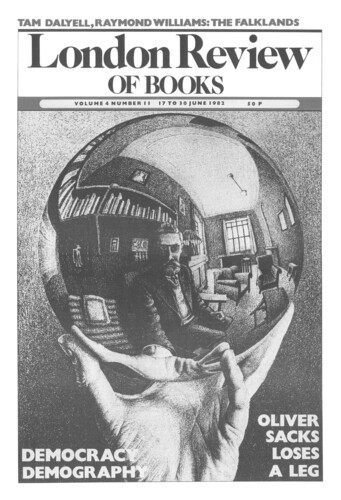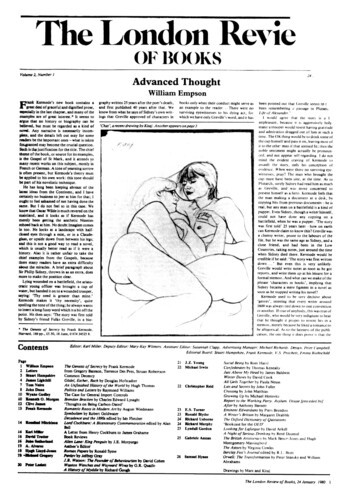Genius
Richard Gregory, 17 June 1982
Why are some people creative to the point of genius, even though they may not appear especially intelligent, or in any other way remarkable? Creativity is a long-standing puzzle which has received many trite and no very convincing accounts. Explanations range from the Divine Spark to slogging hard work; from unconscious problem-solving to super-conscious awareness; from the darkness of profound dreams to the brightness of extreme wakefulness; from slow gestations to instant insights. A merit of this book is that it looks at these various accounts – in the light of historically testified and autobiographical examples – with a good pinch (I almost said a Lot) of salt. The author, D. N. Perkins, a Co-Director of Project Zero at Harvard, includes puns and situation jokes as examples. Here he is following Arthur Koestler, but he does not altogether accept Koestler’s notion of Bisociation, expounded in The Act of Creation. This is the notion that we generally act within reference frames, and that creating involves relating normally independent matrices. Perkins’s objection – which is a central theme – is that creativity is not a special kind of thinking. For him, there is no essence, no special mental functions, for creativity: but there is strongly held motivation to achieve ends that may be new. For him, it is a matter of searching for and discovering surprising relations with an eye on fairly specific end-results, though with nothing very special required to produce even the unique results of genius.


